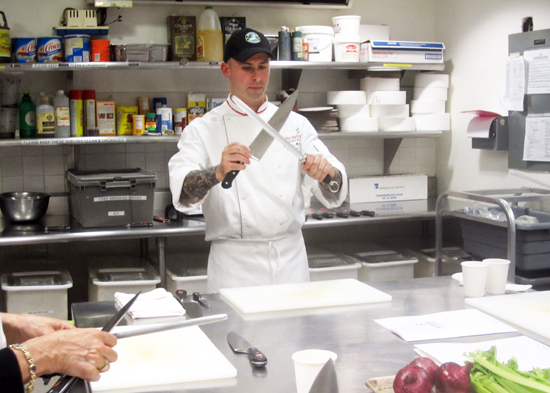Before registering for Knife Skills I, I thought of myself as a pretty decent slicer and dicer. While my cuts were never perfect, I always get the job done and have managed to keep all my fingers intact. I never imagined this class would open my eyes to a world of things I have been doing wrong in the kitchen, things that are actually making prep-work significantly harder for me than necessary.

To ensure that you won’t make the same mistakes as me, here are a few very important tips Chef Instructor Brendan McDermott taught the class that every new cook and seasoned pro should know.
Storing Your Knife: Never toss your chef's knives in a drawer among other kitchen utensils. Storing your knife, uncovered, in the mix of other kitchen gadgets will dull the blade, meaning you’ll have to work harder when cutting. Instead, keep knives covered or store on a magnetic strip. Plus, you'll keep your fingers safe when reaching into a drawer.
Honing Your Knife: You should hone your knife every time you use it. Honing your knife will keep the blade fresh by aligning the microscope teeth along the blade. If you regularly hone your knife, you will only need to have your knives sharpened once every year to year and a half.
Cleaning Your Knife: Never clean your knives in the dishwasher. This too will cause your knife to become dull. Both knives and cutting boards should be washed by hand to ensure that chemicals inside your dishwasher are not settling into their surfaces. These are just a few of the tips to make your time in the kitchen a little less stressful. For more techniques check out ICE’s full recreational class list for all basic culinary classes and our knife skills series.
ICE is also proud to announce we will be hosting Gourmet Live’s first-ever Kitchen Essentials event on June 13. The event will focus on knife skills and will include 90 minutes of hands-on instruction in the basics of this important culinary technique. For more info and to get tickets, go to their website.



